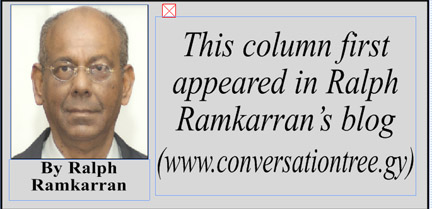Once again the issue of an apology from the PNCR has become topical. First raised with Opposition Leader David Granger while he was on a visit to the United States, it emerged again at a press conference in Guyana. Mr Granger repeated a long established PNCR policy, designed to deflect public pressure, that there would be no blanket apology on the basis of hearsay or conjecture as if rigged elections fall in those categories. He called for all errors of the past to be investigated and said that other political parties needed to apologise as well.
Even though the PPP has made the most of the PNCR’s history during its ‘28 years’ in office, as far as I am aware it has never formally called for an apology or given support to those who have done so. The PPP’s position just before the 1992 elections was captured in the slogan, ‘no recrimination, no discrimination.’ In practical terms that policy manifested itself in no inquiries or investigations being held in election rigging, corruption, Jonestown, police killings and torture and the other well-known consequences of authoritarian rule.
In General Secretary Rohee’s response to Mr Granger’s declared support in the US for shared governance, the conditions he set out for the PPP to give it consideration related to concessions by the opposition in the current political impasse. He did not call for an apology. An apology also never featured in the Jagdeo/Hoyte and Jagdeo/Corbin agreements in

